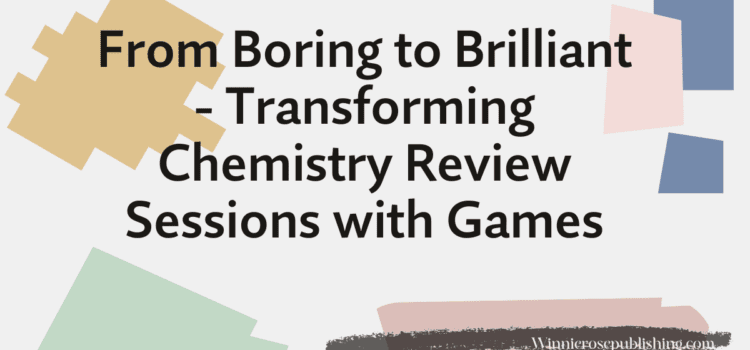
The students have begged for a chemistry review day as they prepare for a unit test. You would prefer not to prepare materials to present, yet you know that the students will not have studied enough to have decent questions on the review day. You begin to realize that they are not prepared for the test, believing the review session will reveal some secrets about the test. Frustration is right around the corner.

You need an option that will make the review session more enjoyable for the students and improve their retention as well. A game-based strategy can transform a boring review session into an exciting event
Students today have short attention spans. They want to stay engaged and entertained, or they will start tuning you out immediately. A gamified strategy for review days provides immediate feedback to the students. They feel motivated to win the game and actively collaborate with their team. Participation is very high.
Ideas for interactive chemistry reviews are numerous. Here are a few.
Jeopardy-style games – divide students into groups and create a game using PowerPoint, Google Slides, or something digital like Kahoot or Blooket. This encourages some friendly competition and adds some excitement. If you can add prizes, like stickers or something small, it is even more exciting. Just about any topic could be converted to jeopardy – from nomenclature to stoichiometry calculations to gas laws. It can be simple, like labeling, categorizing, and defining, or it could be complex calculations.
Escape Room Challenges – Create a chemistry-themed escape room where students solve problems to “unlock” clues. This can be physical or digital. A physical one requires more planning and prep work, but the results are very satisfying, and students really enjoy it. A digital escape room can be set up with a Google form, where they do not advance to the second question until they get the first question correct. This requires some testing to be sure the form is working as it should, but then it works seamlessly, and it is autograded. I have used a digital escape room for thermodynamics with great success.
Any topic can work well, you just want the questions to lead logically from one to the next, especially if you are trying to tell a story with the assignment.
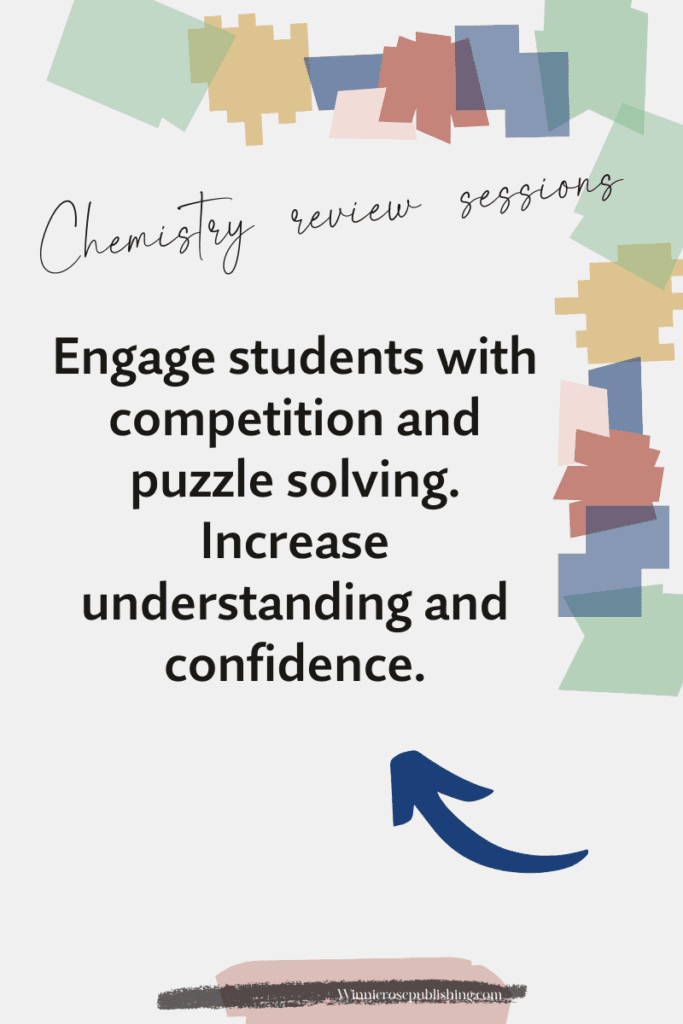
Speed Dating Review – have students pair up and solve a short problem together. After 2 minutes, everyone switches to a new partner and they move onto a new question. Keep them moving every 2 minutes, and students can quickly quiz one another. If you like, you can use the speed dating time to allow students to ask each other questions so they can help teach each other.
More Ideas for Games for Chemistry Review
Board Game Adaptation – Any kids’ board game, like Snakes and Ladders or Candyland can be adapted to a chemistry review. Change out any chance cards to chemistry questions. I roll of the dice can decide which question they get from a pile as well as how many spaces they can move. A good source of copies of an old board game is thrift stores and yard sales. It will take some work to come up with questions and parameters.
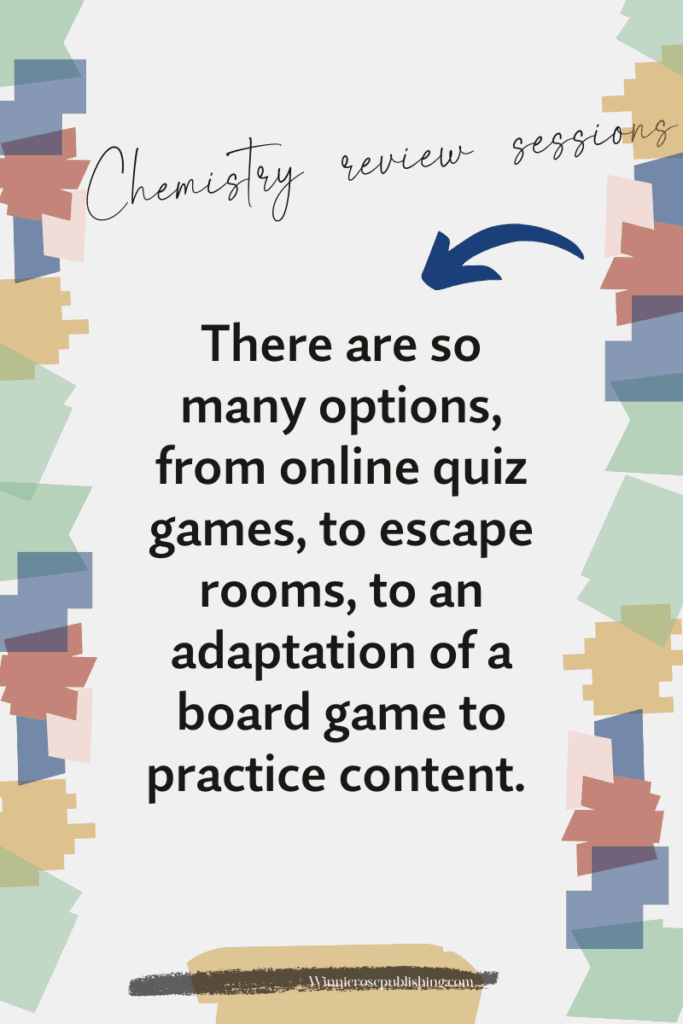
Puzzle challenges – think about matching games, card games (war), and crossword puzzles. You can use these as a timed challenge or a fun activity that reinforces concepts. Some examples linked here include a matching game tesselation where tiles have to be placed to match names and formulas, and a set of crossword, word find, and cryptogram related to the periodic table. A blog post about the advantage of matching games specifically is here.
Digital Tools for Engaging Review Sessions
There are a number of online quiz creation sites, including Kahoot, Quizzlet, Blooket, and others. Some of these have pre-written content from other teachers. In other cases, you can write your own questions to use in your class, and then save it for future semesters. Students enjoy the competition, and being digital natives, they are used to games that involve technology and websites. The setup takes a bit of effort if you need to create your own quiz games. However, the reward is pretty large.
Setting students up in teams to allow them to work together on a common goal encourages cooperation. Winning students will appreciate prizes (even something as simple as candy will do), and they will quickly see how they stack up against the material, and against each other.
Another option to use technology is to create a jeopardy-style game in PowerPoint. There are templates available that have all the links and backend work set up already, and you can just insert questions, and you will be good to go.
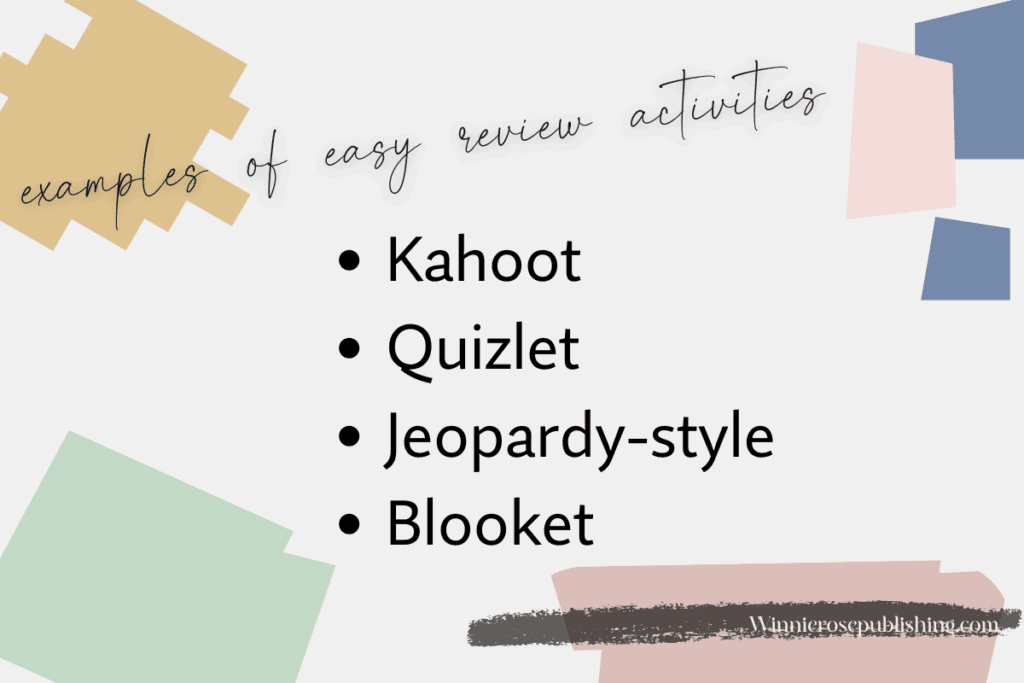
Tips for Implementing Engaging Chemistry Review Sessions
Students love games in class, and they can be an engaging option for a review session. Here are a few things to consider as you plan the game and then implement it.
- Rotate different game types to keep sessions fresh. You need a variety of game styles, including some that are timed and others that are puzzle-based. Some are jeopardy style, and some are problem-solving type activities. This ensures that students with different strengths will be successful at various activities.
- Offer small incentives (extra credit, stickers, class privileges) to increase motivation. I have been to a lot of professional development sessions telling me that I need to develop intrinsic motivation in my students. And I agree that intrinsic motivation is necessary to become a more mature learner. But I also know that high schoolers love stickers. They will fight over them in my classes.
- Balance competition and collaboration to ensure all students participate. Some students are very competitive and do best working alone, while others are consensus builders and work best in cooperative settings. Mix the options throughout the semester to ensure that you include all styles of gameplay. In this way, all students will be excited and engaged to participate.
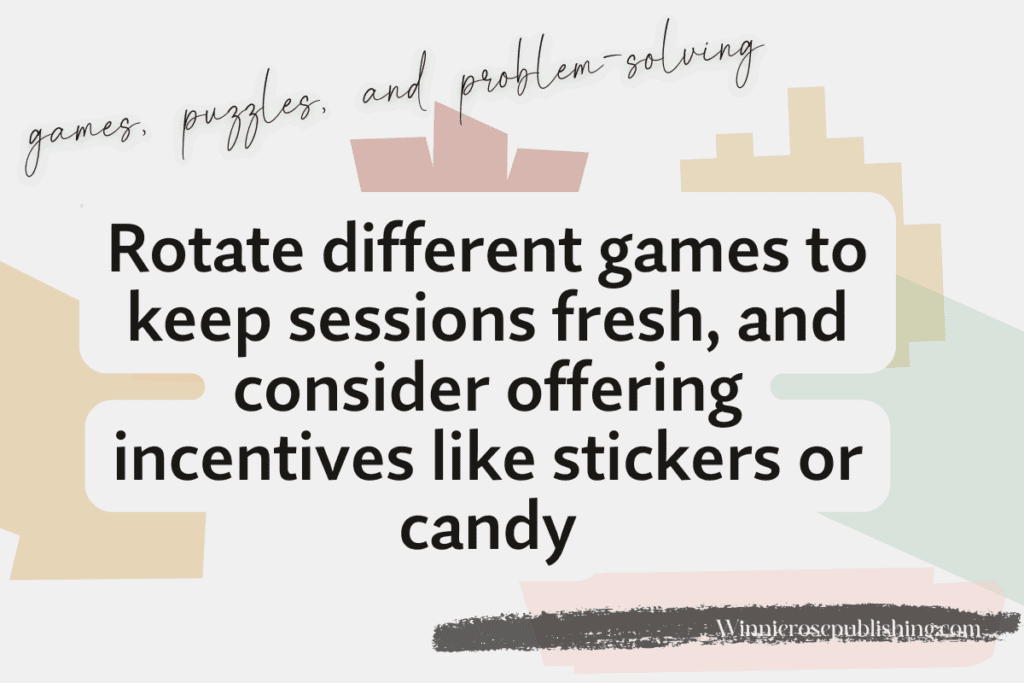
Conclusion – review for the chemistry final need not be boring
- Chemistry review doesn’t have to be a dull, rote memorization process.
- Incorporating games and challenges can make review sessions more effective and enjoyable.
- Try one of these strategies in your next review session and watch student engagement soar in your next chemistry reviews session.
- To get onto my mailing list and keep updated on new products and projects, click here.



